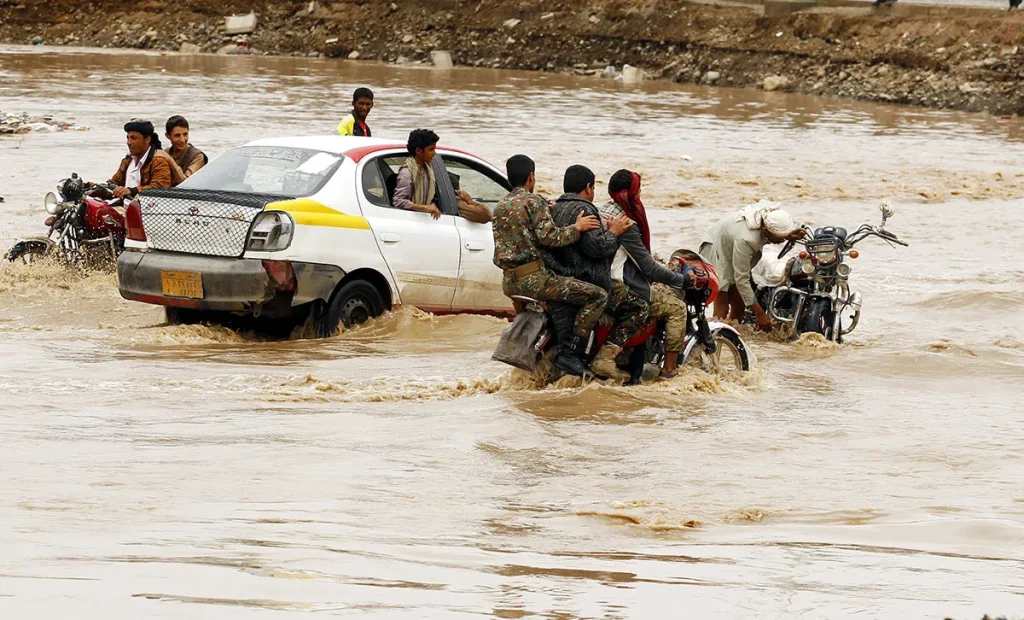Over 100,000 Yemenis impacted by flash floods

Relief organisations have said over 100,000 Yemenis have been affected by the flash floods that have taken place in the country – with even more heavy rainfall expected to come, Asharq Al-Awsat reported on August 28th.
The International Rescue Committee (IRC) said in a press release on August 26th that “more than 100,000 people have been affected by flash floods, triggered by torrential rains, that have destroyed homes – including camps for already displaced families – and left farmland submerged.”
The IRC also describes flood damage to critical infrastructure like roads, water and sanitation facilities as well as power lines– cutting Yemenis off from essential services and pushing many to flee their homes.
The United Nations Refugee Agency has backed the IRC – describing how the flooding has struck Houthi-led governates and impacted over 16,000 families (around 100,000 people).
The UN agency is rushing with supplies for those who have been displaced.
On August 15th, the UN had warned Yemen that its rainy season was likely to bring widespread floods – putting an already strained agricultural output in even greater danger.
The floods have been compounded by an ongoing conflict and an unstable economy – further straining the access of households to supplies from markets or foreign aid.
Isaiah Ogolla, IRC’s acting country director in Yemen, said: “Southern Yemen is already in the grips of a severe food crisis and these floods have further deepened the emergency.”
Ogolla also noted how the floods have swept away the homes and crops of many – leaving some Yemenis with nothing to return to.
The Yemen floods are one of the many extreme weather disasters that have recently ravaged the Middle East – Iraq is currently experiencing one of its worst droughts in decades. Meanwhile, wildfires have blazed across Syria’s highly-vegetated areas.
It appears the impact of climate change is making itself known throughout the region.
Asharq Al-Awsat, Maghrebi.org, Maghrebi Week
Want to chase the pulse of North Africa?
Subscribe to receive our FREE weekly PDF magazine














